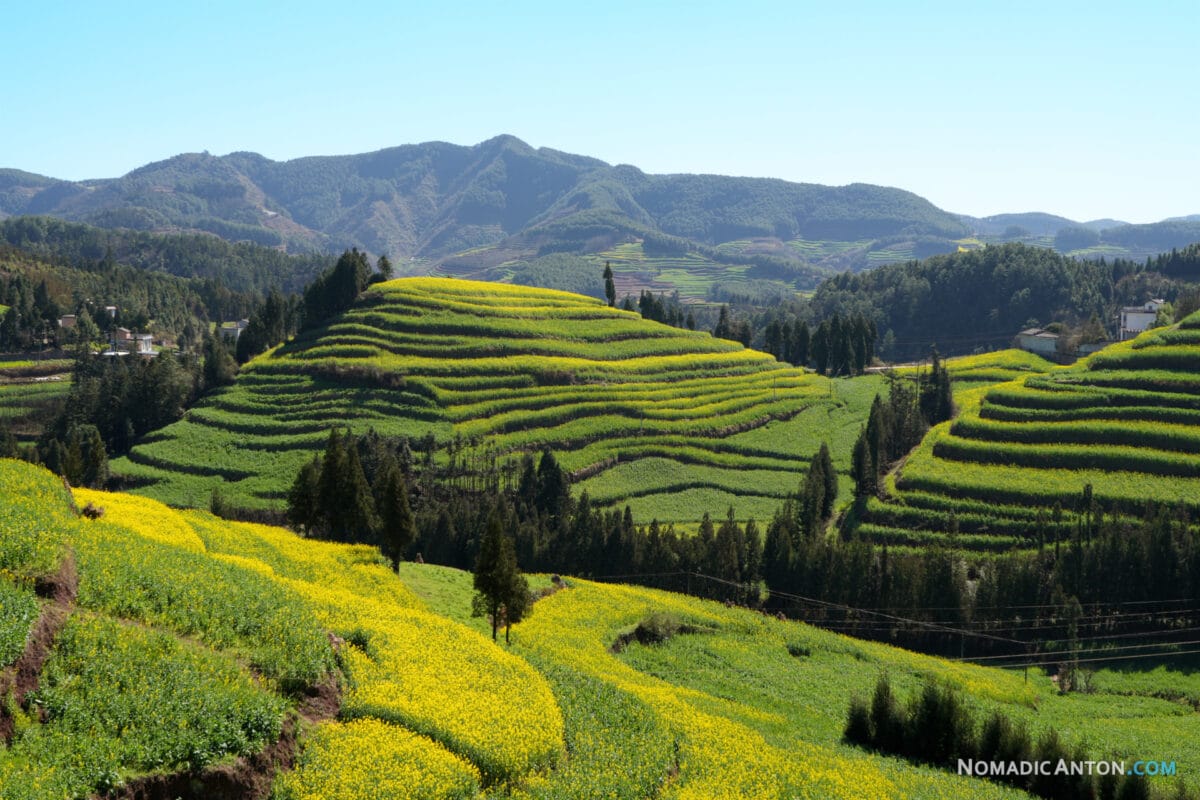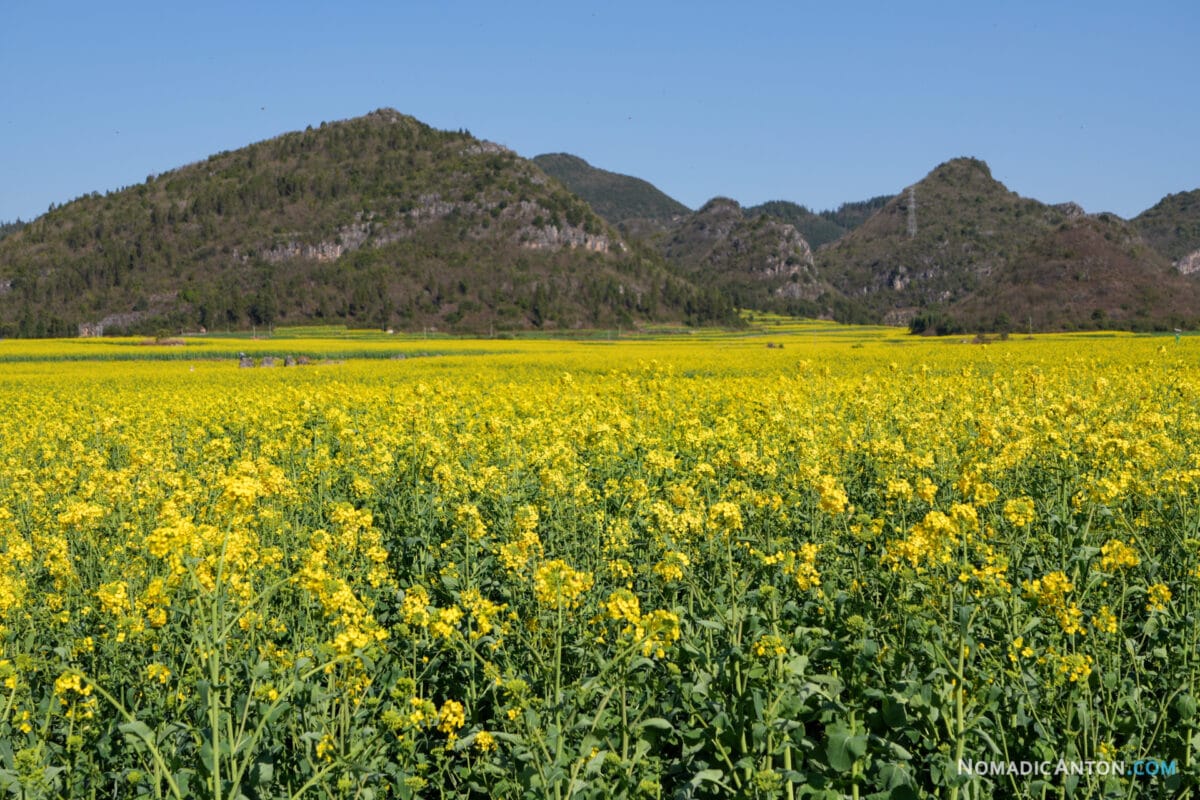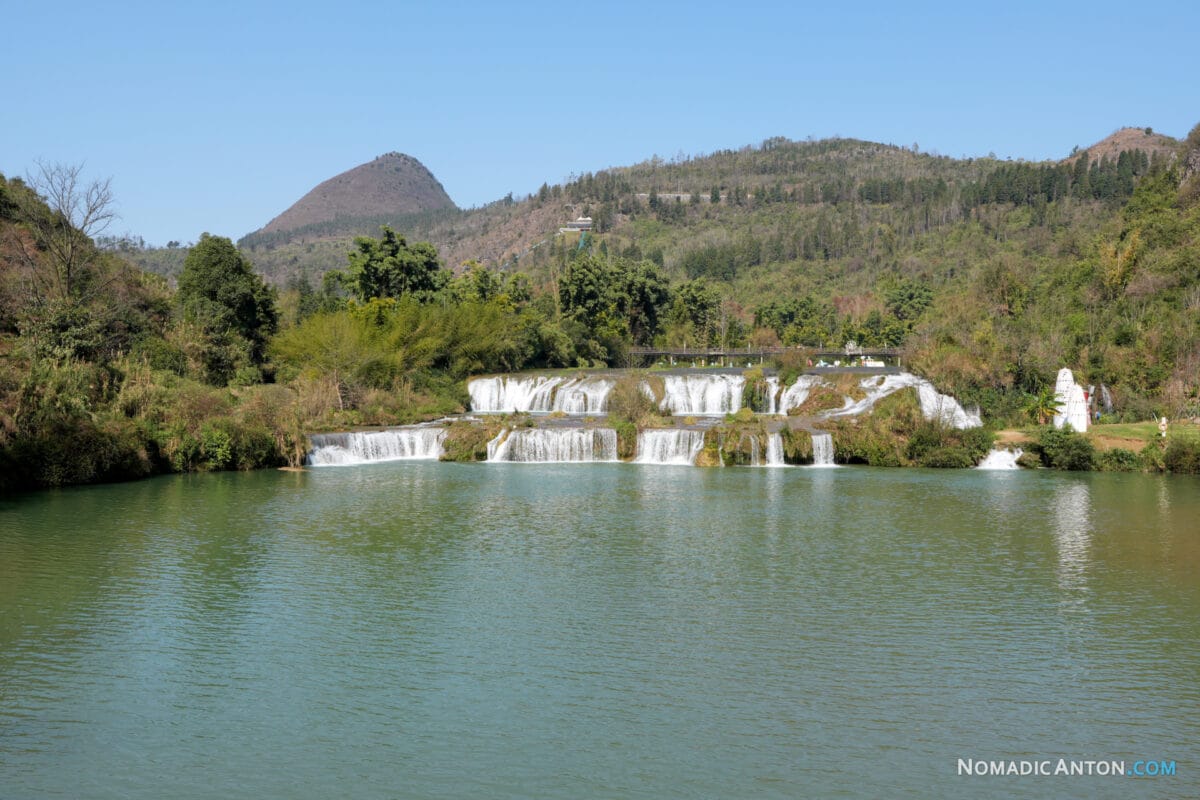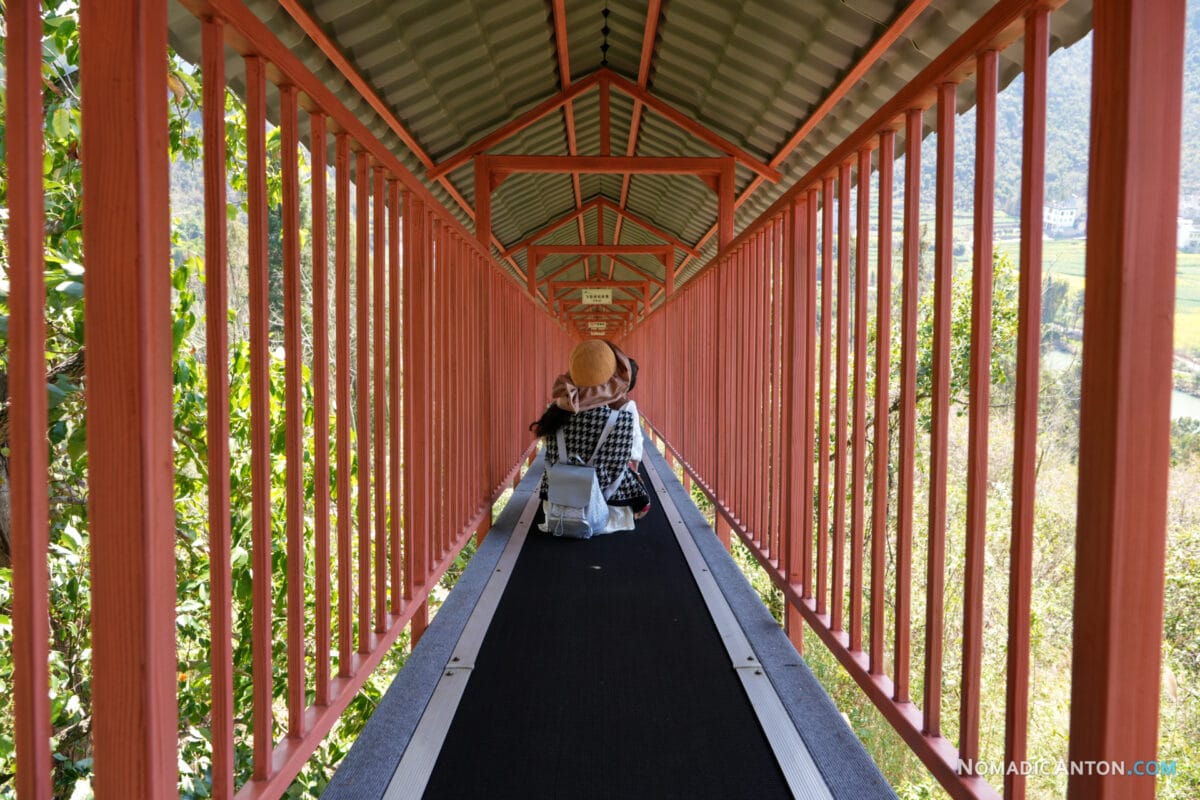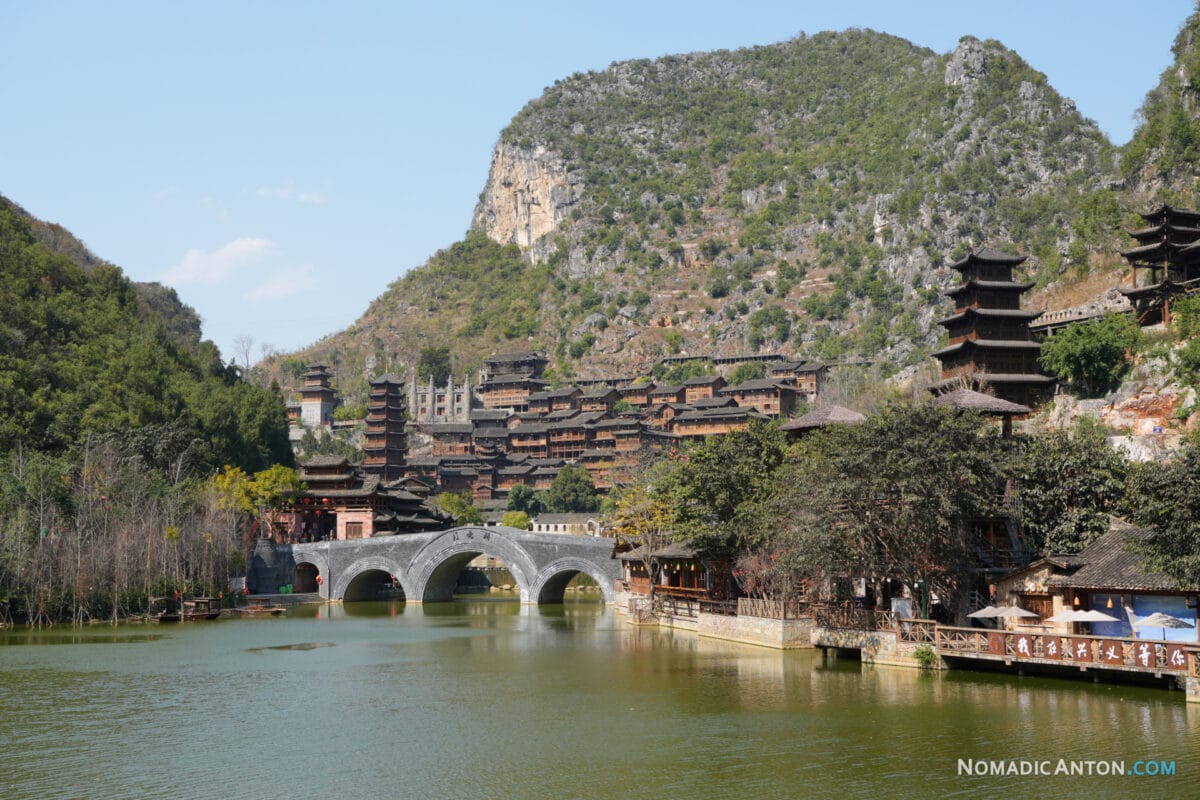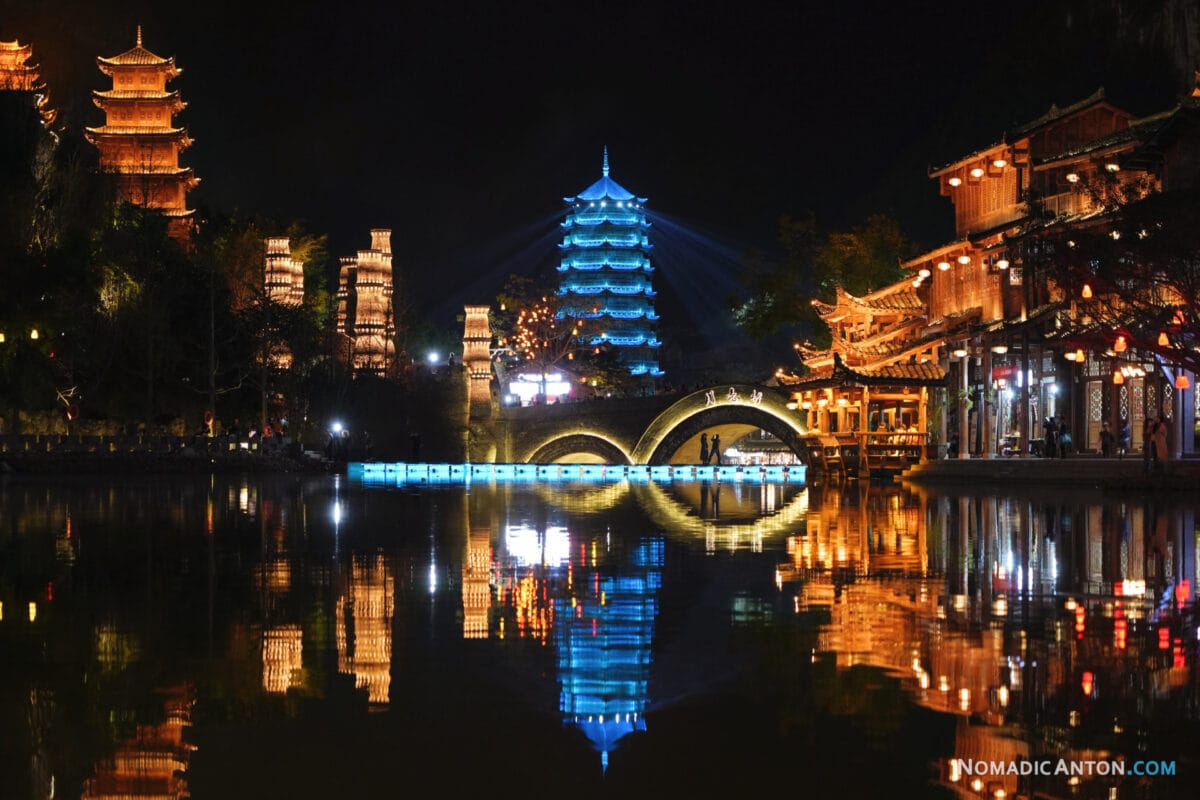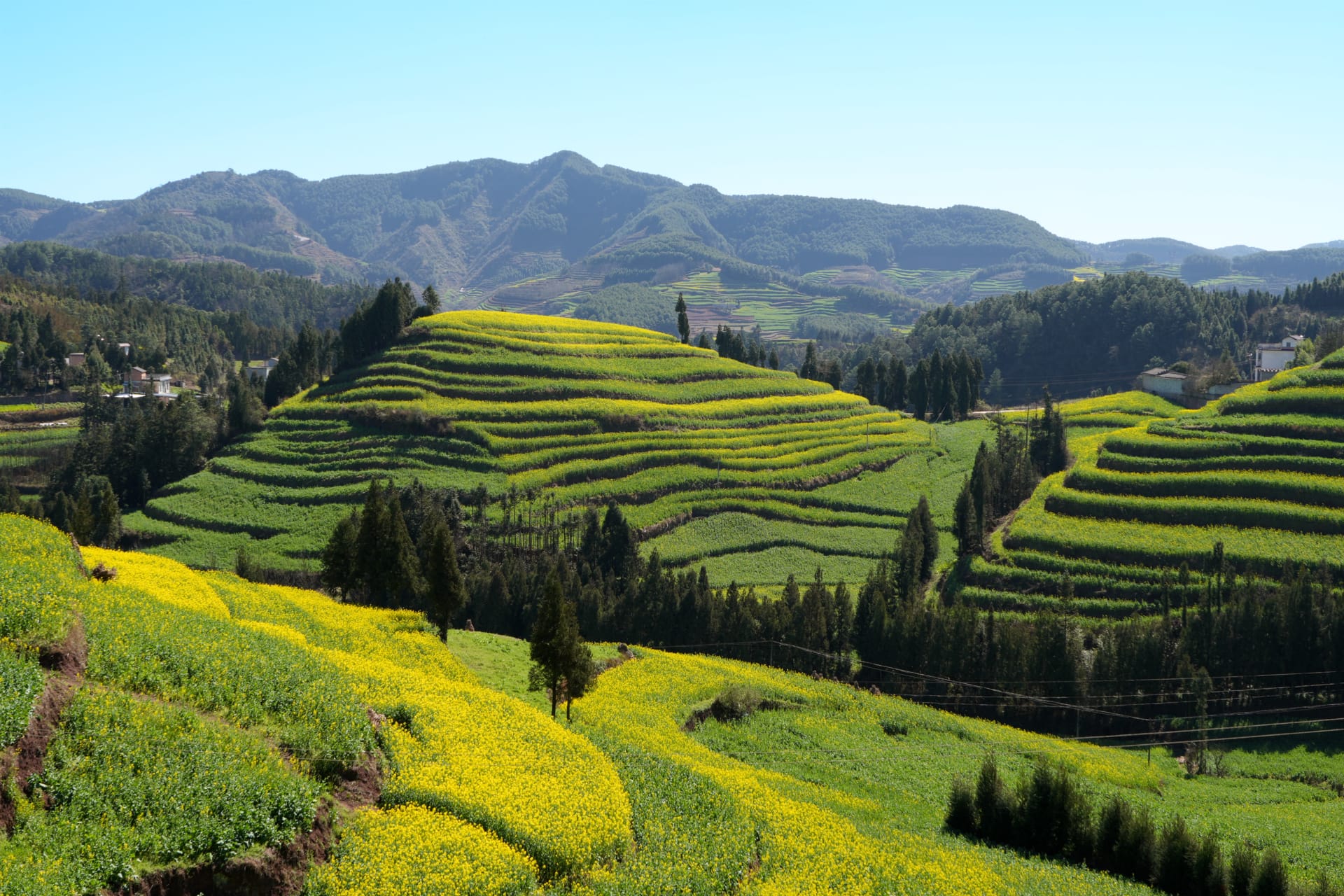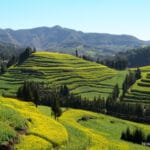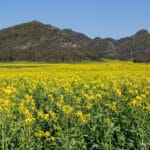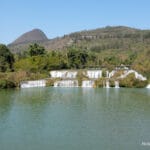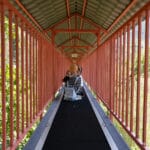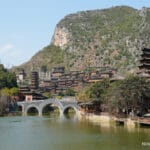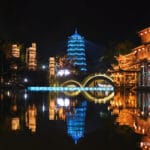Introduction
Since I’m currently based in China, I’ve decided to discover more of the country. So I made a travel plan of a few days in the beginning of March to see blossoms of rapeseed in Yunnan province, specifically around the town of Luoping. My journey started by high-speed train to the city of Qujing, after which I took a bus to Luoping, where the rapeseed blossoms are.
About Luoping
Luoping is accessible by train or bus from Kunming, the capital of Yunnan province, or by bus or car from Qujing, which is the route I took. The journey from Qujing to Luoping took about two hours, passing through scenic countryside with terraced hills and lush greenery.
Luoping is famous for its rapeseed fields, which draw visitors every spring. The bright yellow blossoms cover the hills and valleys, creating a striking contrast against the green mountains. This bloom season transforms the area into a golden landscape, attracting photographers and nature lovers from across China and beyond.
The county is primarily agricultural, with a rich cultural heritage influenced by several ethnic minorities including Yi and Miao peoples. Local traditions often revolve around agricultural harvests, with festivals celebrating the bounty of the land. Traditional performances featuring colorful costumes and lively music showcase the region’s cultural diversity.
I stayed in Luoping for four full days. While the food options weren’t very diverse, I mostly had rice with pork, some clear vegetable soups, and chicken on a few occasions. Yunnan is also known for its Pu’er tea, which I drank regularly during my stay. I’m not really a tea drinker, but I still appreciated it.
Rapeseed Blossoms
Rapeseed (Brassica napus) produces brilliant yellow flowers that bloom for approximately one month each year. The plant is cultivated primarily for its seeds, which contain about 40% oil. In China, rapeseed has been cultivated for over 2000 years and today, China is the world’s largest producer of rapeseed oil.
Beyond its stunning beauty, rapeseed plays a crucial role in Chinese agriculture and cuisine. The oil extracted from rapeseed seeds is the country’s most widely used cooking oil, appreciated for its light flavor and high smoke point. The plant is also valuable as a rotation crop that improves soil health by reducing pests and diseases.

An interesting fact is that rapeseed fields naturally attract honeybees, supporting local honey production. Luoping honey is considered some of the finest in China due to the pure nectar from the rapeseed blossoms.
I visited many fields that were blossoming, and the beginning of March is a good season to come here to witness this beautiful bloom. Many rapeseed plants are grown on the hills, and the plantations look like rice terraces. Yunnan is a mountainous region.
Jiulong Waterfall
Around Luoping there are other things to see besides rapeseed blossoms. I went to discover Jiulong waterfall where I spent half a day walking up and down and enjoying nature.
Jiulong (Nine Dragons) Waterfall is one of Yunnan’s most spectacular natural attractions. Located about 20 kilometers (12.4 miles) from Luoping, it features nine separate cascades that descend in tiers from a height of approximately 56 meters (183.7 feet). The waterfall stretches across 300 meters (984.3 feet) in width, creating a magnificent panorama.
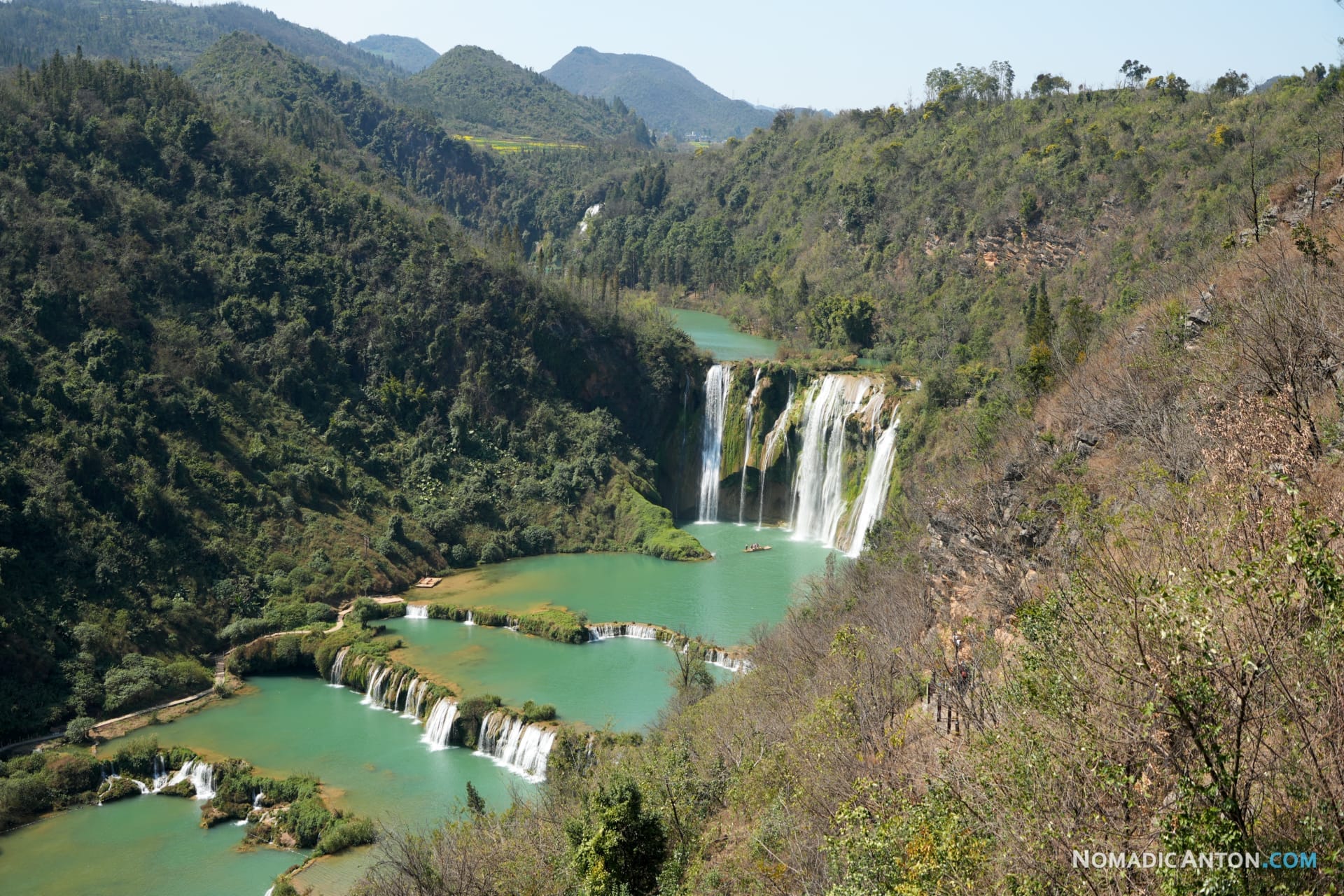
The waterfall derives its name from the nine cascades that resemble dragons leaping down the mountainside. According to local legend, nine dragons once came to help local villagers during a severe drought, transforming themselves into the waterfall to provide eternal water to the region.
The area surrounding the waterfall is home to diverse plant species, including rare orchids and medicinal herbs that thrive in the moist environment created by the cascading water.
Here, for the first time, I used a human conveyor. It takes people up the hill instead of a cable car. You just sit on it and it slowly moves you up.
Fenglin Buyi Village
I decided to discover other things a bit further away. A 2-hour car ride took me to Fenglin Buyi, a newly built cultural tourism attraction in Guizhou, a province neighboring Yunnan. It is a recreated village that was opened in 2024 to showcase Buyi ethnic heritage. The village features traditional-style wooden houses, folk performances, and local handicrafts. It is surrounded by karst mountains and a river.
The Buyi (also spelled Bouyei) are one of China’s 56 recognized ethnic minorities, with a population of approximately 2.8 million. They primarily reside in Guizhou province and have a rich cultural heritage dating back thousands of years. Their traditional lifestyle centers around agriculture, particularly rice cultivation, and they are known for their distinctive batik textiles, intricate embroidery, and bamboo crafts.
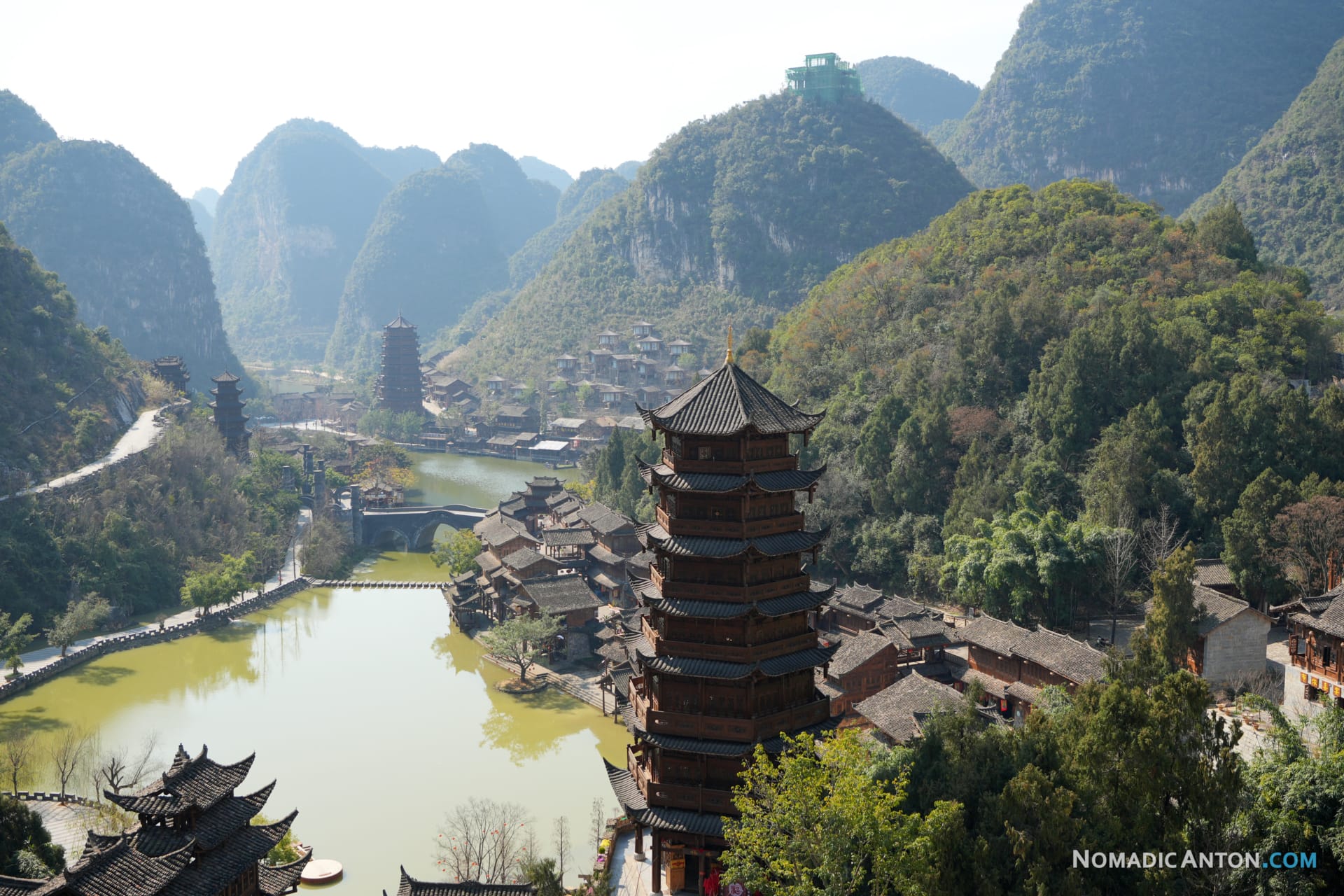
The Buyi language belongs to the Tai language family and has its own writing system. Their traditional beliefs blend animism with ancestor worship, though many have adopted Buddhism or other religions. Music plays an important role in Buyi culture, with the lusheng (a reed pipe instrument) featuring prominently in ceremonies and festivals.
Traditional Buyi architecture typically consists of wooden structures built on stilts, designed to adapt to the mountainous terrain and humid climate of their homeland. Houses are often constructed without using a single nail, instead employing ingenious mortise and tenon joints.
I spent the whole day here, and it was my last full day of the trip.
